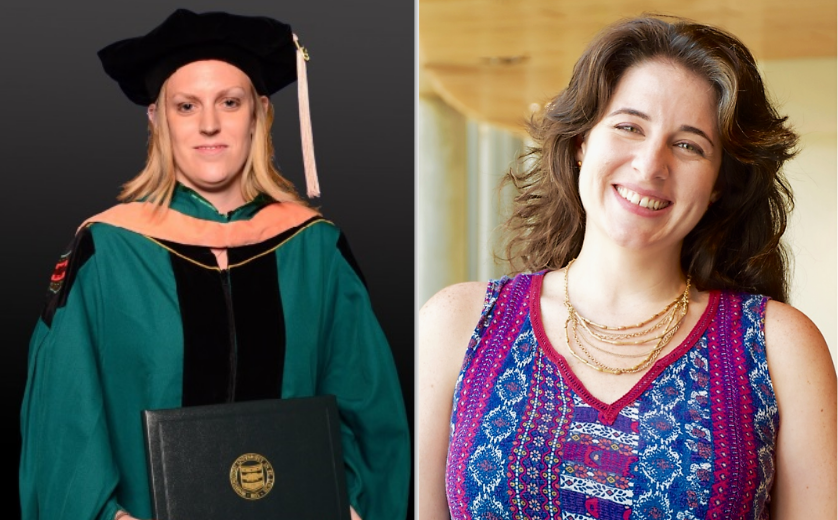Two recent Brown School graduates were recently selected for a highly competitive Global Health Fellowship, and the good news of their awards was amplified when they learned later they’d both be working in Nairobi, Kenya.
Christina Moore, MPH ’18, and Mackenzie Robinson, MPH ’19 received the fellowships, offered by the Public Health Institute and Centers for Disease Control and Prevention. They had known each other from the Brown School, but didn’t realize that they had both been selected for the opportunity in Nairobi, Kenya, until they were told by Angela Hobson, assistant dean for public health.
“It’s a great thing, a crazy thing,” said Robinson, who will be serving as a Strategic Information Fellow with the Health Systems & Evaluation Branch at CDC/DGHT (Department of Global HIV and TB) Kenya, working on HIV testing.
“It will be so nice to have someone else there that I know,” agreed Moore, who will be working on HIV epidemiology with the CDC’s Monitoring and Evaluation team in Kenya.
The Global Health Fellowships are for a year, but renewable up to three years. The wildcard right now is the pandemic, which has stalled the relocation of Robinson and Moore to Kenya. They will begin two weeks of virtual training in September and in the meantime will be awaiting updates.
“It’s definitely a unique situation,” Robinson said. “It’s proven just how important public health is and why training needs to continue.”
Moore received her master’s at the Brown School after completing her nursing degree.
“I came to the Brown School for its strength in global health as well for the opportunities to pursue interests in health equity and health disparities,” she said. She completed her practicum in global health at a rural district hospital in Shirati, Tanzania, working in the HIV clinic and then going into the community to follow up on patients. After graduating with her MPH, she was working as a research coordinator at the School of Medicine. She applied for the fellowship because she wanted to return to global public health.
Her upcoming fellowship work in Nairobi will be analyzing data for HIV testing and figuring epidemiological calculations to measure improvements, population reach, and sudden infection increases in certain populations.
Before coming to the Brown School, Robinson spent four years in East Africa, where she was a coordinator for various health and education projects with an international non-profit, including a maternal and newborn health project in Shinyanga, Tanzania. Robinson’s specializations at the Brown School were global health and epidemiology/biostatistics, and she completed her practicum at the Centre for Infectious Disease Research in Zambia.
“I looked at quite a few schools, but the Brown School offered a lot more one-on-one attention and mentorship, as well as the strong roots in health equity work, which is often ignored in a lot of public health programs. That really attracted me.” While at the Brown School, she was a research fellow with the Prevention Research Center, which she said rounded out her skills with training in dissemination and implementation.
In Kenya, She will be working on HIV “recency testing,” with the TRACE initiative, a way to detect HIV earlier than what most other tests allow. Diagnosing HIV earlier enables identification at the most infectious stage of the virus, when contract tracing is most important. As testing is scaled up in more countries in East Africa, Robinson will be tracking the testing and conducting surveys to develop more efficient data management and analysis, and to guide regional strategic planning.
